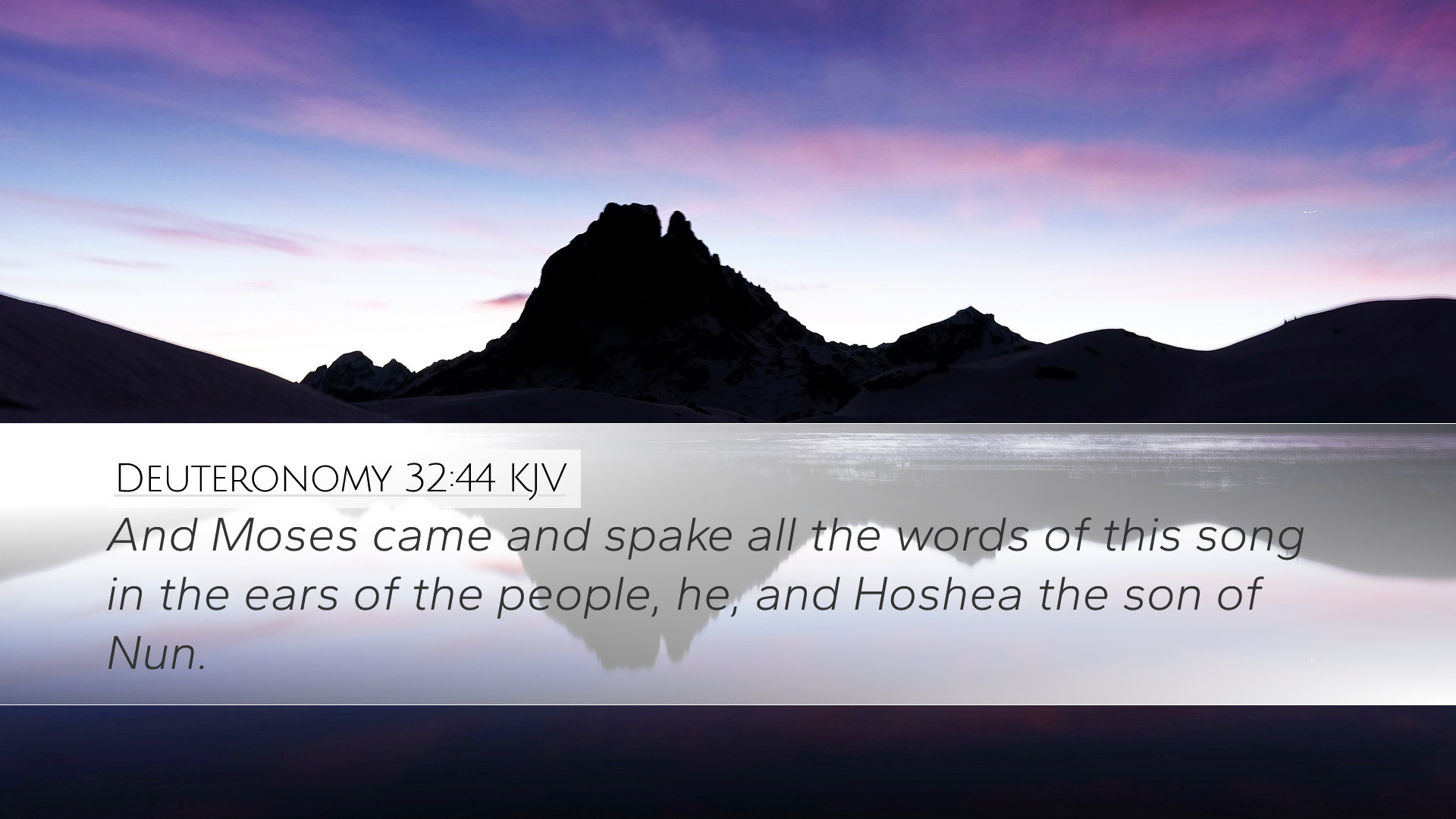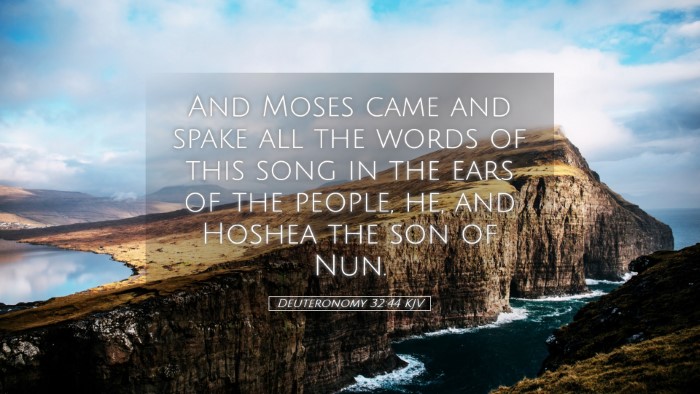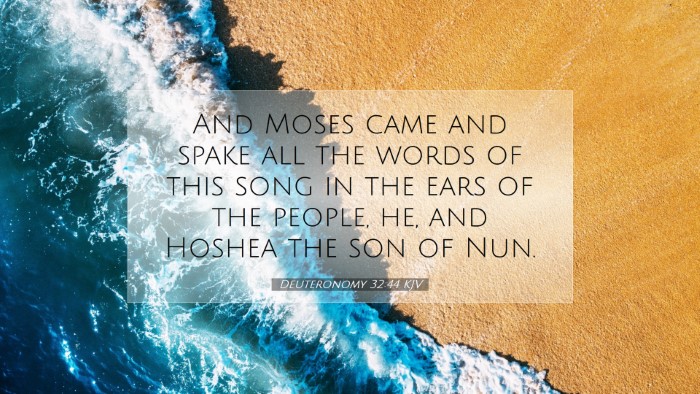Commentary on Deuteronomy 32:44
Text of Deuteronomy 32:44: "And Moses came and spake all the words of this song in the ears of the people, he, and Hosea the son of Nun."
Introduction
Deuteronomy 32 marks a significant moment in the Old Testament, providing keen insight
into the relationship between God and Israel. As Moses prepares for his departure, he
presents a song that encapsulates the history of Israel, their covenant with the Lord,
and the imperatives of faithfulness.
Moses and Hosea's Role
The mention of Moses and Hosea, son of Nun (later Joshua), is vital not only for its
historical context but also for its theological implications. This verse emphasizes
the continuity of divine leadership. Moses, the great Lawgiver, is now passing the mantle
of leadership to Joshua, who will lead the children of Israel into the Promised Land.
-
Moses' Authority: As a prophet, Moses speaks with divine authority.
His recitation of the song serves as a testament to his role as mediator between God
and the people.
-
Hosea/ Joshua's Emergence: The transition to Joshua signifies the shift
in leadership. It represents hope for Israel's future, suggesting that God's plans
continue through faithful successors.
The Significance of the Song
This song, also referred to as "The Song of Moses," is a historical narrative that serves
several functions:
-
Reminder of God's Faithfulness: The song recounts God's past dealings
with Israel, highlighting His faithfulness despite Israel's rebellion.
-
Warning Against Apostasy: The lyrics serve as a solemn warning to
Israel regarding the consequences of turning away from God. It underscores the need
for remembrance and adherence to God's covenant.
-
Call to Worship: The song's purpose extends beyond warning; it also
invites Israel to worship and honor God for His righteous acts.
The Context of Revelation
This moment occurs at the close of Moses’ life, illustrating the urgency of his message.
The song is a means for Moses to impart crucial truths that will resonate throughout Israel's
history.
The setting is poignant: at the brink of entering Canaan, Israel must be equipped not only
with the Law but also with a heartfelt response to God’s divine intervention. As Moses speaks,
one can sense the weight of history and the pivotal nature of choices yet to come.
The Role of Music in the Faith Experience
This passage encapsulates the role of music in the life of worship. In ancient Israel, music
was fundamental for several reasons:
-
Memory Aid: Songs serve as mnemonic devices, helping the people remember
God’s deeds and the Law.
-
Emotional Connection: Music communicates deep-seated emotions, serving
as an expression of collective identity and shared faith.
-
Teaching Tool: Songs teach theology and reflect on biblical truths, making
such truths accessible to all, including the illiterate.
Theological Implications
Theologically, this verse presents crucial themes relevant for pastoral care and teaching:
-
The Centrality of God: The reference to divine instruction reveals that
all aspects of life should be centered around God’s Word.
-
The Nature of Leadership: Moses and Joshua exemplify devoted leadership,
urging current leaders to reflect on their responsibility to future generations.
-
The Importance of Remembrance: The need for Israel to remember God’s
works encourages today’s believers to engage in practices that ensure the passing down
of faith.
Application for Today
Pastors, theologians, and students can draw several applications from Deuteronomy 32:44:
-
Teaching through the Arts: Church leaders are encouraged to utilize music
and the arts to teach and motivate congregations toward faithfulness.
-
Fostering Leadership Development: Institutions and ministries should invest
in emerging leaders like Joshua, equipping them with biblical knowledge and practical skills.
-
Creating a Culture of Remembrance: Churches should emphasize practices
that help congregations remember God’s faithfulness and foster a spirit of gratitude.
Concluding Thoughts
The significance of Deuteronomy 32:44 extends beyond its immediate historical context;
it provides valuable lessons on leadership, remembrance, and the power of sacred music.
As we reflect on Moses’ delivery of this song, may we be inspired to lead effectively,
remember God's blessings, and engage in worship that genuinely reflects our faith.


